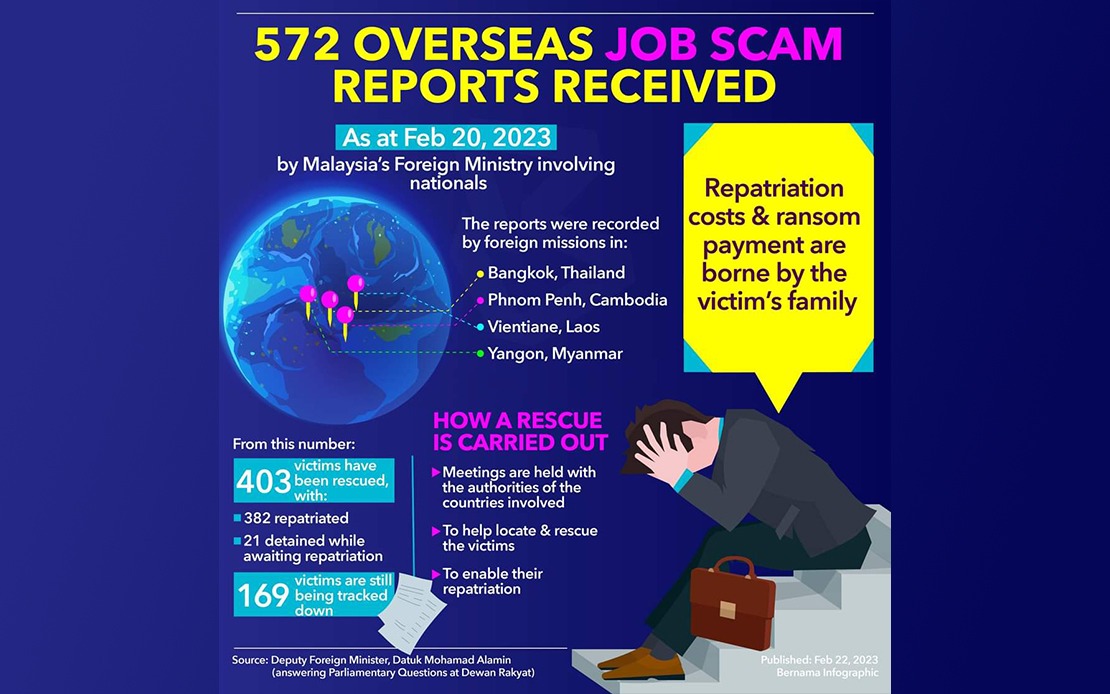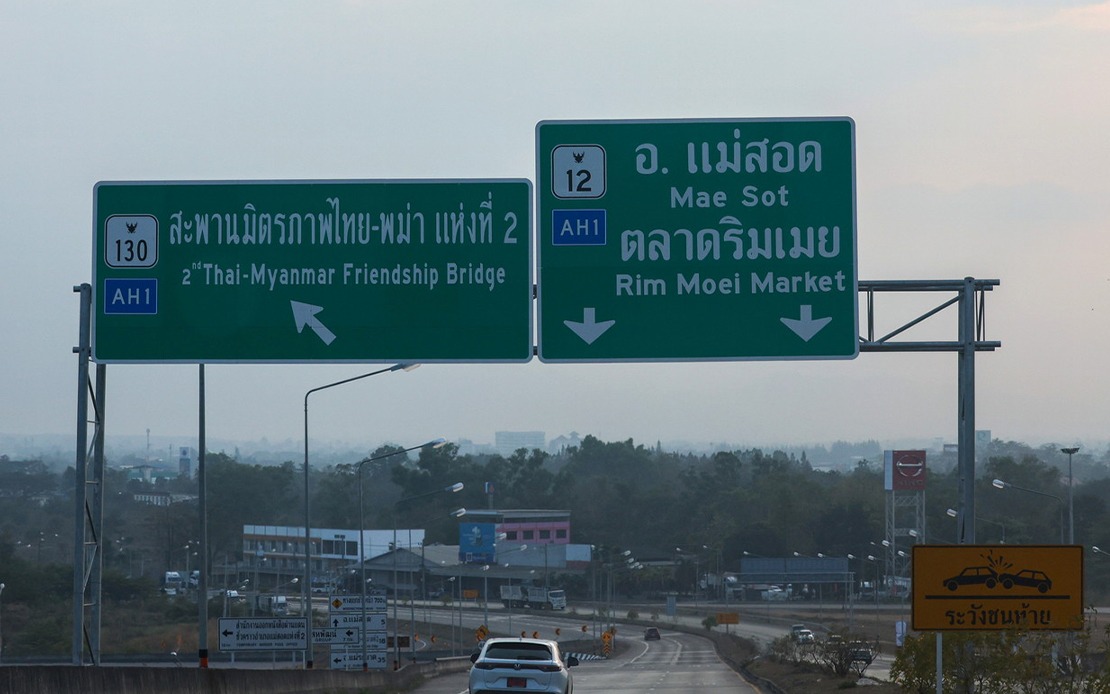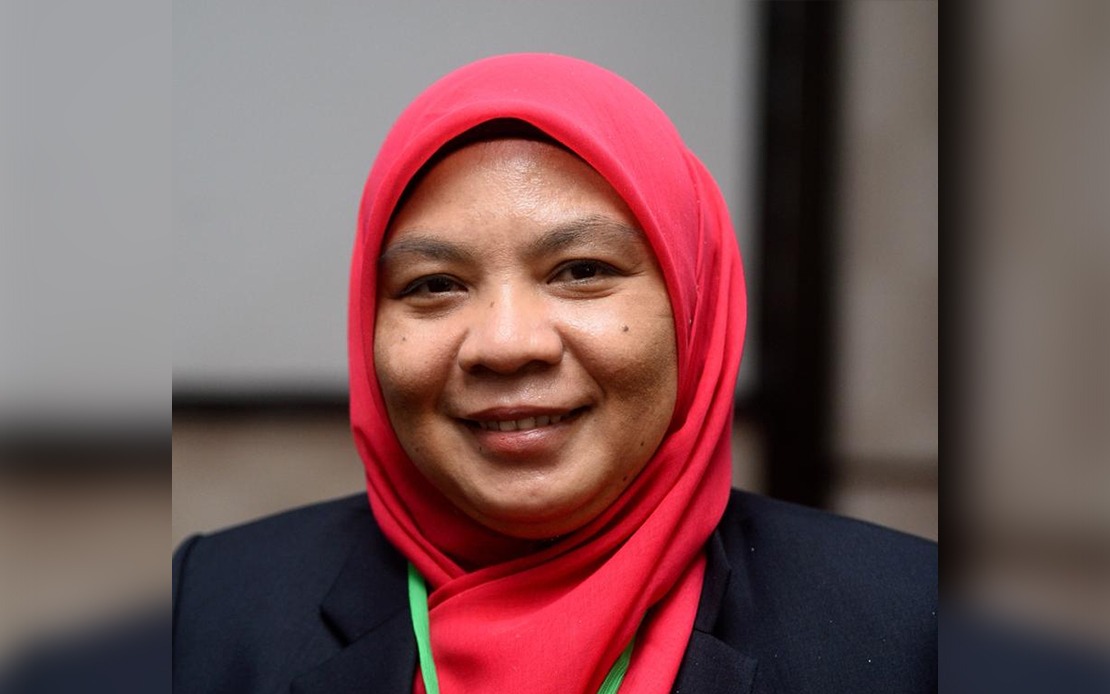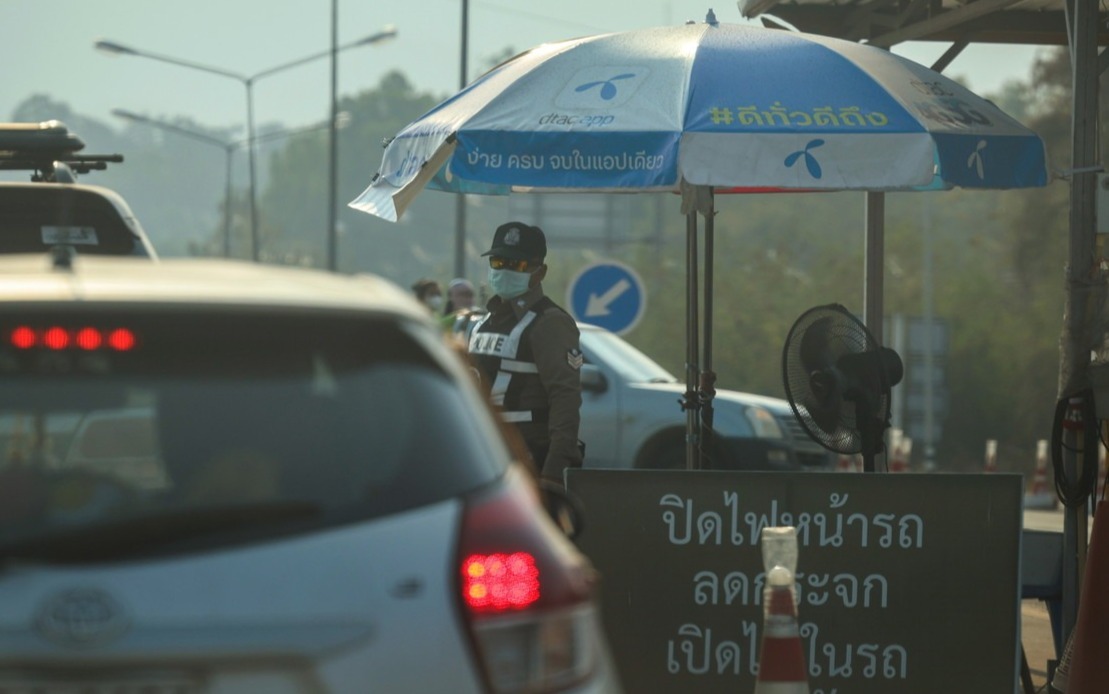<
strong>This is the final of a two-part series on the Malaysians who fell for job or love scams and were trafficked to Myanmar.
MAE SOT, THAILAND/KUALA LUMPUR (Bernama) – It all started in August last year with an advertisement on Facebook offering a nice salary – lucrative only due to the currency exchange rate – for unskilled jobs in Singapore.
Adam Iskandar Tukiman, Nur Akmar Hamsan, Nur Fitriani Abdullah and Kamil Abd Hamid answered the call, thinking they would be able to support their families or become independent with the promised US$1,100 (RM4,976) monthly salary.
Instead, they ended up virtual prisoners in KK Garden, a huge compound in Myawaddy, Myanmar, for months, working as online scammers while surreptitiously sending messages to family or friends back home, begging them for help. Rescued victims have reported the number of Malaysians in KK Garden, a notorious site for scam centres allegedly run by gangsters from mainland China, has grown to about 1,000 in recent years.
Throughout their ordeal, the group questioned how they ended up as victims of a job scam and human trafficking. What were the red flags? Where did they go wrong?
Twenty-year-old Adam and 19-year-old Akmar, who between them have a total of 15 siblings, did not see the Facebook advertisement. Instead, they trusted their friend Muhd Farhan Azman, who they considered an expert in working overseas, when he said there were jobs for them in Singapore.
“We were invited to follow Farhan. He had worked in Singapore before this so we believed him,” said Akmar.
However, Farhan had fallen for the same fraudulent job offer that trapped Nur Fitriani and Kamil. He was rescued in December.
As Malaysians are discovering, job scams and the ensuing human trafficking of Malaysian nationals are becoming a scourge, putting at risk the country’s security and growth should it go unchecked. As of Feb 20, the government has received 572 reports of overseas job scams.

--BERNAMA (2023) HAKCIPTA TERPELIHARA
For years, Malaysia – with its Internet-savvy population and strong English background and ready-made Chinese speakers – was primarily a destination country for migrant workers, not an origin country. Now the table has turned, thanks largely to COVID-19.
During the global lockdown, it became easier to dupe Malaysians and lure them to scam centres located in Cambodia, Laos or Myanmar. Mass layoffs made many desperate to earn money, while the lockdowns meant there were fewer witnesses to prevent the smuggling of people from Malaysia to Myanmar.
Combating this problem is not easy though experts cite raising awareness as the best way to do so.
RED FLAGS
Adam and Akmar thought they had taken the necessary precautions when they accepted Farhan’s job offer. They thought everything was okay: the recruiter had given them RM1,700 to get their passports done and buy supplies for life overseas.
But when they arrived at the airport, they got their first glaring red flag.
Their destination was not Singapore after all but Bangkok, Thailand. The agent assured them that this was normal.
The hotel in Singapore has already filled the housekeeping jobs, he said, but not to worry, a hotel in Thailand needs workers.

Dalam perjalanan ke Mae Sot. --fotoBERNAMA (2023) HAKCIPTA TERPELIHARA
When Adam and Akmar landed in Bangkok, agents from the company greeted them, escorting them to a waiting van. From then on, more red flags appeared. They were under guard the whole time, with armed and uniformed guards accompanying them in the later part of the journey. After arriving in Mae Sot, a Thai town at the Thai-Myanmar border, they crossed the Moie River by boat to reach KK Garden.
“At that time, we were wondering whether we were going to be sold. We couldn’t do much then as we were in a foreign country. We also didn’t have much money so we just followed,” said Akmar.
The importance of red flags is that they offer an off-ramp for the victims to get away. The trick is to recognise them.
Experts Bernama consulted said the red flags were there from way before the last-minute change of destination, namely the job advertisement.
“One red flag is the job description, which is all very vague. There’s never much detail and it’s all ‘contact us if you are interested’,” said Judah Tana, an anti-trafficking activist with Australian charity Global Advance Projects.

Zarina Ismail, presiden Pertubuhan Kebangsaan Sumber Manusia Malaysia. Gambar ihsan.
National Association of Human Resources Malaysia president Zarina Ismail agreed, saying legitimate recruiters would include their details and the prospective employers’ details.
“For example, Facebook. However, they want to advertise on Facebook, they must attach their company’s name, salary, position, the company’s location. So when they do that, we can call or email and ask, ‘Is there really a vacancy in your company?’” she said.
She added another red flag is the lack of a letter of offer with the name of the company and address, job position and description, and prospective wage.
One other red flag that some trafficking victims overlooked was the need for a passport to travel and work overseas, like in Nur Fitriani and Kamil's case. After they agreed to take the job, the agent told them they did not need a passport. Like them, other victims in similar situations said they believed their recruiter.
“How is that possible? You should know that, at a minimal level, when you go out of the country, you should have your passport,” said Adrian Pereira, executive director for migrant rights group North-South Initiative, sounding frustrated.
PREVENTION
Experts say the very nature of the business now, more online and criss-crossing borders, means the criminal masters are never the ones to get their hands dirty, ruling their little fiefdoms hundreds or thousands of miles away via the Internet. With crypto, it has become even harder to track them.
Therefore, preventing people from falling for a scam is the best solution, but doing so may take a Herculean effort.
While many of the scam and trafficking victims may have been gullible, naive, ignorant or just too trusting, there are many who did their due diligence but were still ensnared. Activists warn that anyone can become a victim, regardless of their education level or how street-smart they are.
One of the reasons anyone can fall for a scam is the fact that many recruiters are people they would trust.
“The majority of (cases of) people being trafficked are done by third parties, so it’s an agent within the country. So it’s not a Chinese man (from China) coming to find you to work for them. It’s their own people, it’s Malaysian to Malaysian, so it makes it more complex,” said Tana.
So even if the job offer was a red flag but the one doing the recruiting was their friend, like in the case of Adam and Akmar, few would suspect anything was amiss.

Perjalanan ke Mae Sot dari Bangkok perlu melalui tiga pusat pemeriksaan Tentera Thai. --fotoBERNAMA (2023) COPYRIGHT RESERVED
The answer was to increase awareness of the correct procedures for working overseas and the warning signs.
Tana suggested adopting the scammers’ methods to achieve this goal.
“Information, information, information and using technology. We have to use social media against them. We have to start campaigns that go viral,” he said, adding that such campaigns can be accompanied by gimmicks like the Ice Bucket challenge and online activism hashtags similar to ‘Black Lives Matter’ and ‘Me Too’.
As for Zarina, she thinks the government should require online job recruiters to publish their licence numbers in their advertisements, on top of providing their and the prospective employers’ details.
She said there should be a framework by which job-seekers going overseas have to satisfy before leaving the country, such as requiring confirmation from the embassies concerned that such companies exist. She added that Malaysian workers overseas should also be required to register with a reputable recruitment agency in Malaysia licensed by the Human Resources Ministry, which can provide overseas Malaysian workers with information and assistance.
“Recruitment agencies… all know what the correct procedures are with whichever embassy, the Malaysian Embassy, whatever,” she said, adding that overseas Malaysians should also provide their contact and work details to the Malaysian Embassy in the country they are working in.
All agreed that putting up banners and billboards near the country’s entry and exit points to remind the public of the importance of having a passport and other warning signs of job scams and human trafficking was a good way to reach the masses. Bernama reached out to Communications and Digital Minister Fahmi Fadzil for comment but could not get one in time for publication.
Teruntum assemblyman Sim Chon Siang, who has been instrumental in helping secure the release of 96 trafficked Malaysians from job scam syndicates, told Bernama he supported any method to warn the public, especially young people who he said were vulnerable to job scams.
“Our young people all have handphones. But they play games, they don’t watch the news,” he said.
LAST CHANCE
Throughout the journey, the four victims said they thought of running away but could not because they were being watched or because of the language barrier.
“I had thought of running away. But once we escape, what do we do? We knew we had no chance to escape,” said Nur Fitriani, 19.

Nur Fitriani Abdullah, 19. --fotoBERNAMA (2023) HAKCIPTA TERPELIHARA
Experts say even if people still missed the red flags or are unaware and found themselves scammed and trafficked, it is still not too late. They advised victims to reach out, create a ruckus and draw attention to get the authorities involved, be it in Malaysia or Thailand.
Tana said victims should not give up.
“If you arrive in this town, Mae Sot, and you’re from another nation and you’re on a tourist visa being promised a job. Run. For. Your. Life.
“That’s the moment that they can still get out. That’s the moment … they’ve still got some freedom, that’s the moment they can still make the exit. But the moment they get on that boat (to Myanmar), they’re lost,” he said.
-- BERNAMA
Penulis
Nina Muslim
10 April 2023